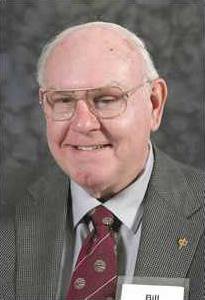If the number of e-mails he’s received are any indication, there is swelling support in Kansas for a new law that would set guidelines on how long a parent can wait until they report a child missing, said state Rep. Bill Wolf.
The Great Bend Republican said the movement for a so-called “Caylee’s Law” comes in the aftermath of Casey Anthony’s acquittal in the death of her daughter Caylee Anthony in Florida. “This thing has created quite a stir.”
With reason, he said. “There haven’t been any laws anywhere that set a length of time to report a missing child.”
Although there is not bill formulated, the idea is being pushed by Kansas House Speaker Mike O’Neal, R-Hutchinson, who said he’s researched possible changes in state criminal laws after the mid July acquittal. He and his staff are looking into Kansas laws that cover reporting the disappearance or death of a child and wants to make sure prompt reporting is required.
Casey Anthony was found not-guilty in the death of Caylee. But, “she would have been guilty if such a law had been in place.”
Wolf said he’s received over 50 e-mails from voters, mostly from his 112th District which covers the northwest corner of Barton County. Most are form letters which say, in part, “I’m writing to propose that a news law be put into effect making it a felony for a parent, legal guardian or caretaker to not notify law enforcement of the disappearance of a child within 24 hours of the time that they know the child is missing, so proper steps can be taken to find that child before it is too late.”
This way, the writers say, “there will be no more cases like Casey Anthony’s in the courts, and no more innocent children will have to go without justice. ... Let’s do what is necessary to prevent another case like this from happening.”
According to Wolf, other state lawmakers have also received the messages.
“This is going to be an issue that is addressed,” Wolf said. “It is already in the planning stages here in Kansas.” The Legislature can’t act on any bill until it convenes for its 2012 session during the second week of January.
“There are all kinds of laws that protect children,” the legislator said. “But, laws have to be specific.” This new law would close some loopholes.
“Sadly, the Casey Anthony case has made it clear that Kansas and other states need well-defined reporting standards for cases of child disappearance and stronger laws penalizing parents and guardians for failing to report the disappearance of a child,” O’Neal and Kansas Social Rehabilitation Services Secretary Robert Siedlecki said in a joint statement. Siedlecki backs the efforts of the speaker.
“One of the primary responsibilities of state government is to protect the safety of children,” their statement continues. “There is no defensible reason why a child’s disappearance should go unreported.”
The crafting of this law will be a deliberate process, the two said. They will be looking for input from law enforcement and the criminal justice system before moving forward with the actual legislation.
“This is an emotional issue that goes to the heart of both parental and government responsibility. Parental rights must be respected, but the final result must put the welfare, well-being – and survival – of our children first.”
In June 2008, Anthony’s 2-year-old daughter Caylee was last seen at the Orlando, Fla., home she shared with her mom and her maternal grandparents. For the next month, Casey Anthony, then 22, left her parents’ house and spent most of her time with friends, shopping and partying, telling her family and others that Caylee was with an imaginary nanny.
Anthony’s mother called detectives when Anthony could not produce her child. Anthony told investigators she hadn’t called them because the nanny had kidnapped the child and she had been conducting her own search, two of the numerous lies she told investigators.
Anthony was acquitted of murder in Caylee’s death, but convicted of four misdemeanor counts of lying to investigators. She was sentenced to the maximum of four years, but after serving nearly three years in jail awaiting trial couple with good behavior credits, and was released July 17.
Kansas is not alone. Efforts to draft a “Caylee’s Law” are already underway in Oklahoma, Maryland, Florida, North Carolina, Kentucky, Pennsylvania and New Jersey.
Support growing in state for Caylees Law





